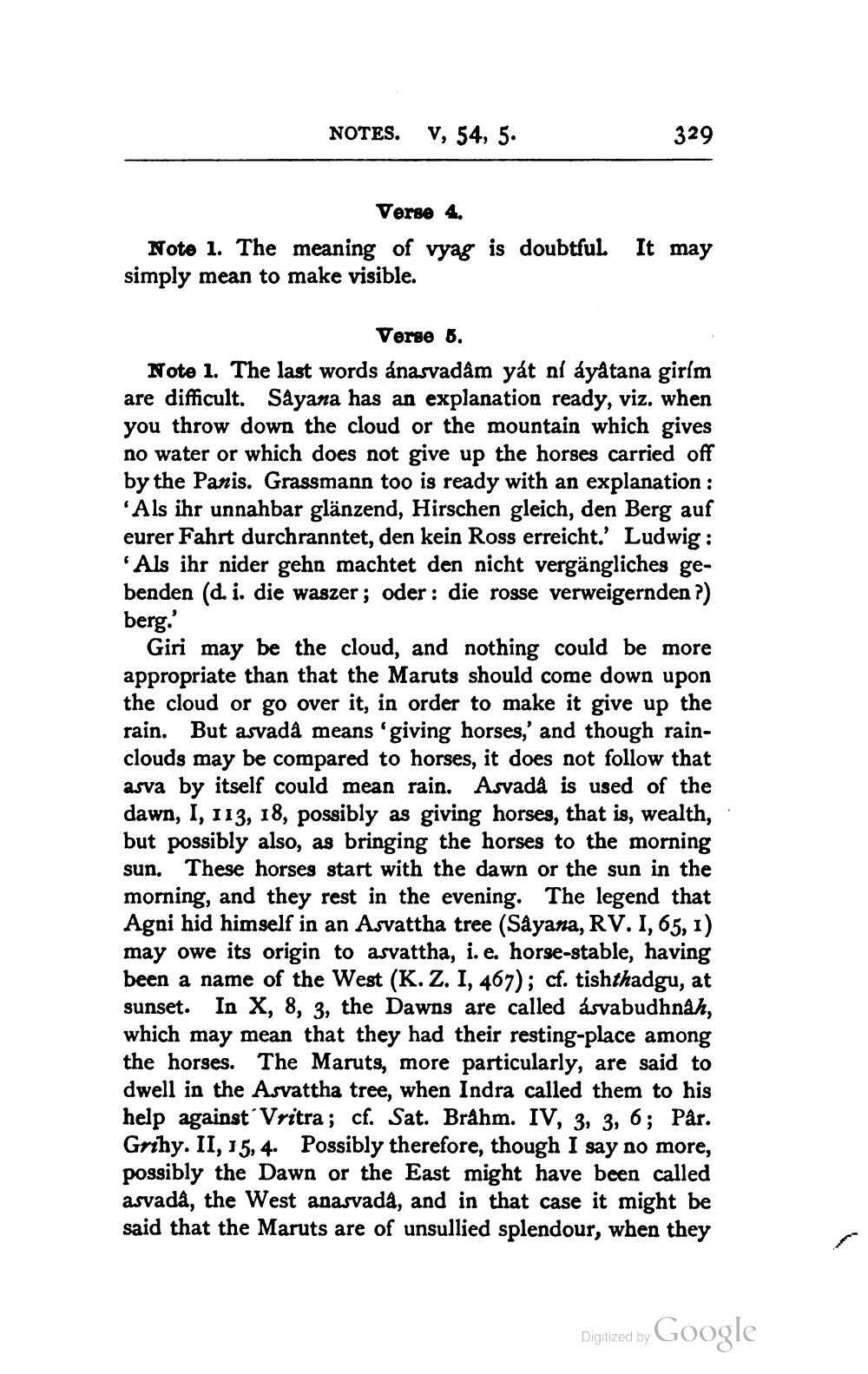________________
NOTES.
V, 54, 5.
329
329
Verse 4. Note 1. The meaning of vyag is doubtful. It may simply mean to make visible.
Verse 5. Note 1. The last words ánasvadam yát nl ayatana girim are difficult. Sayana has an explanation ready, viz. when you throw down the cloud or the mountain which gives no water or which does not give up the horses carried off by the Panis. Grassmann too is ready with an explanation : 'Als ihr unnahbar glänzend, Hirschen gleich, den Berg auf eurer Fahrt durchranntet, den kein Ross erreicht.' Ludwig : 'Als ihr nider gehn machtet den nicht vergängliches gebenden (d. i. die waszer; oder : die rosse verweigernden ?) berg.
Giri may be the cloud, and nothing could be more appropriate than that the Maruts should come down upon the cloud or go over it, in order to make it give up the rain. But asvada means 'giving horses,' and though rainclouds may be compared to horses, it does not follow that asva by itself could mean rain. Asvada is used of the dawn, I, 113, 18, possibly as giving horses, that is, wealth, but possibly also, as bringing the horses to the morning sun. These horses start with the dawn or the sun in the morning, and they rest in the evening. The legend that Agni hid himself in an Asvattha tree (Sâyana, RV. I, 65, 1) may owe its origin to asvattha, i.e. horse-stable, having been a name of the West (K. Z. I, 467); cf. tishthadgu, at sunset. In X, 8, 3, the Dawns are called ásvabudhnah, which may mean that they had their resting-place among the horses. The Maruts, more particularly, are said to dwell in the Asvattha tree, when Indra called them to his help against Vritra; cf. Sat. Brahm. IV, 3, 3, 6; Par. Grihy. II, 15, 4. Possibly therefore, though I say no more, possibly the Dawn or the East might have been called asvada, the West anasvada, and in that case it might be said that the Maruts are of unsullied splendour, when they
Digitized by
Digilzed by Google




